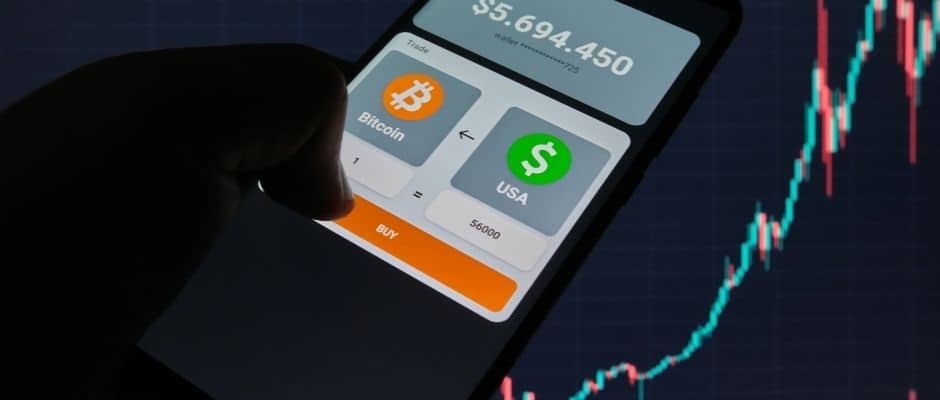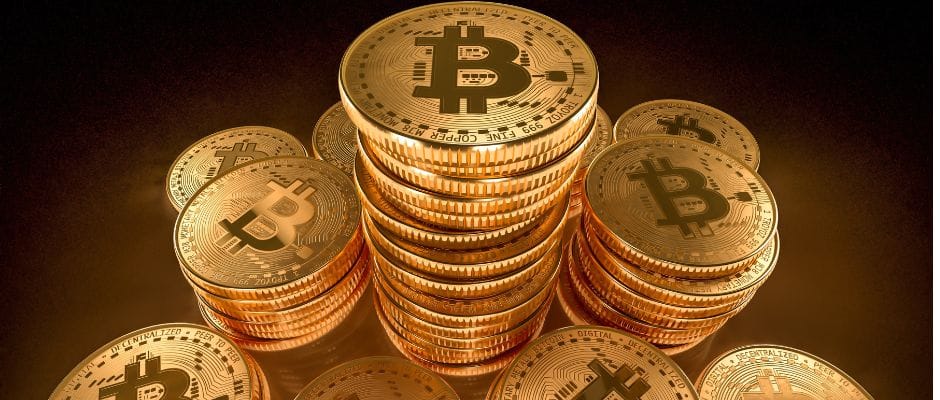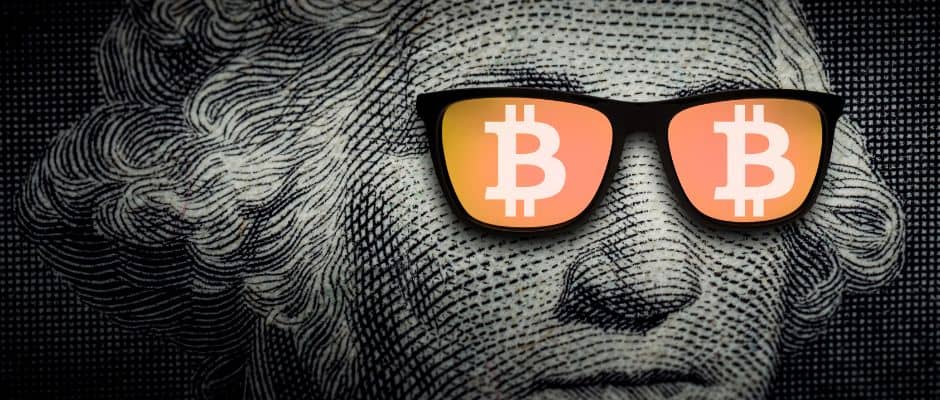Have you ever thought about investing in Bitcoin but do not know where to start? Don’t worry because you are certainly not alone. In 2024, you can buy Bitcoin stocks, Bitcoin futures ETFs, Bitcoin futures, Bitcoin options, and of course, just buy Bitcoin itself. Now, you can officially buy spot Bitcoin ETFs as well!
Bitcoin is becoming a significant part of the mainstream financial industry and there is a push for traditional financial institutions to get involved. Over the past few years, major banks like Goldman Sachs and JPMorgan have started to offer cryptos to their clients. Other neobanks like Robinhood, Ally, and Revolut all offer Bitcoin and crypto trading as well.
With so many options for investing in Bitcoin, why are people still so hesitant? For the vast majority of people, it is a lack of understanding of what Bitcoin is. Bitcoin gets lumped in with the thousands of other cryptocurrencies, many of which are viewed as scams or unregulated ponzis.
Now that the SEC has officially approved spot Bitcoin ETFs, we will discuss their emergence, what they are, and if you should consider them for your investment portfolio.
What are Bitcoin ETFs?

ETFs are funds that hold specific assets, like stocks or futures contracts, that trade on regulated exchanges. When it comes to the everyday investor, these ETFs are one of the easiest ways to invest in Bitcoin. There is no need to sign up for an account with a centralized crypto exchange like Kraken or Coinbase. Instead, Bitcoin ETFs allow you to invest in Bitcoin from your online brokerage account.
Investing in Bitcoin can be daunting but with ETFs, the process is simplified and streamlined. Not only is it easy to access, but it does not require the complicated storage of Bitcoin or concerns over security with centralized crypto exchanges. The first Bitcoin ETF in Canada was the Purpose Bitcoin ETF (BTCC.TO), which was listed on the TSX on February 28, 2021. Since then there have been dozens of others in Canada and the United States for investors to buy.
What are Bitcoin Futures ETFs?
One of the more popular ways to invest in Bitcoin is with futures contracts. These are derivative securities that allow investors to speculate on Bitcoin’s future price. Bitcoin futures ETFs allow investors to be invested in Bitcoin without ever owning the underlying asset.
As their name suggests, futures contracts are forward-looking assets that might not reflect the current price of Bitcoin. These are a great way for investors to be bullish or bearish on Bitcoin despite the current price action.
Bitcoin Futures ETFs are more accepted by regulators than Spot Bitcoin ETFs. The ETF provider does not need to own any spot Bitcoin to offer a Bitcoin Futures ETF. For regulating bodies like the SEC, the preference is to not need to own any Bitcoin because it opens up the asset to market manipulation.
When the futures contracts in the ETF expire, the ETF provider rolls them to a future date. Whether the future strike price is higher or lower, dictates the price action of the price of the ETF’s shares. This will often lead to the price of the ETF not accurately reflecting the spot price of Bitcoin. Thus, Bitcoin Futures ETFs aren’t a perfect way for people to invest in Bitcoin.
What are Spot Bitcoin ETFs?

Update: As of January 10th, 2024, the SEC has officially approved 11 spot Bitcoin ETFs to be listed in the United States. Here is a list of the ETFs approved for trading:
- Blackrock’s iShares Bitcoin Trust (IBIT)
- ARK 21Shares Bitcoin ETF (ARKB)
- WisdomTree Bitcoin Fund (BTCW)
- Invesco Galaxy Bitcoin ETF (BTCO)
- Bitwise Bitcoin ETF (BITB)
- VanEck Bitcoin Trust (HODL)
- Franklin Bitcoin ETF (EZBC)
- Fidelity Wise Origin Bitcoin Trust (FBTC)
- Valkyrie Bitcoin Fund (BRRR)
- Grayscale Bitcoin Trust (GBTC)
- Hashdex Bitcoin ETF (DEFI)
Spot Bitcoin ETFs are funds that aim to track the price of BTC by holding the actual asset. Investors that buy shares of a Spot Bitcoin ETF are buying small shares of the Bitcoin that are held by the ETF provider. In this way, it more accurately tracks the supply and demand of Bitcoin and its impact on the price.
The benefit of Spot BTC ETFs is direct exposure to BTC without owning the asset. For Bitcoin enthusiasts, this might seem like blasphemy but for the everyday investor, it removes the complexities of storage and security. The more demand for the Spot Bitcoin ETF, the more likely the provider will need to purchase more Bitcoin. All of this demand will weigh on the fixed supply of 21 million BTC.
As of July 2024, Blackrock alone owns more than 307,146 BTC valued at over $17.3 billion!
Should I Buy Spot Bitcoin ETFs?
This is the billion-dollar question. Who should buy spot Bitcoin ETFs? For most Bitcoin enthusiasts, owning Bitcoin itself in a hardware wallet is the best solution. That’s perfectly fine! Spot Bitcoin ETFs are for people who want to own Bitcoin without worrying about cold storage or centralized exchanges.
For example, spot Bitcoin ETFs would be an excellent addition to a retirement account where capital gains are not taxed. If you buy now, and Bitcoin goes to $100,000, $500,000, or even $1 million, all of those capital gains could be tax-free.
For most investors, buying a spot Bitcoin ETF will be easier than signing up for crypto exchanges. It also skips the hassle of self-custody and keeping their investment secure. If you are young and have a higher risk tolerance, allocating some of your long-term portfolio to spot Bitcoin ETFs could be a reasonable strategy!
The Bottom Line: The Future of Bitcoin ETFs
It’s official, spot Bitcoin ETFs are here! Are you going to allocate a small part of your portfolio to them? If you have time and aren’t afraid of some risk and volatility, it might be a great long-term investment.
As always, do not use this article as investment advice. It is only an introduction to Bitcoin ETFs and an explanation of how they work. Do your research and determine if spot Bitcoin ETFs are a good fit for your portfolio.
Stay Savvy!
FAQs
Which ETF is Best for Bitcoin?
Of the spot Bitcoin ETFs currently listed on the market, the iShares Bitcoin Trust (NASDAQ: IBIT) has the most assets under management. It also has some of the lowest fees on the market making it an ideal long-term holding. Also worth noting is the ProShares Bitcoin Strategy ETF (NASDAQ: BITO) which pays a dividend distribution each month.
Does Canada Have a Spot Bitcoin ETF?
Yes! Canada’s first spot Bitcoin ETF was listed in 2021 and has traded on the Toronto Stock Exchange. The first spot Bitcoin ETF in Canada was the Purpose Bitcoin ETF. All of the American-listed spot Bitcoin ETFs are also available at most Canadian brokerages.
Which Spot Bitcoin ETF Has The Lowest Fees?
The Franklin Templeton Digital Holdings Trust (EZBC) has the lowest fees among all of the spot Bitcoin ETFs listed in the United States. It has a MER of 0.19% which is slightly lower than its peers.
Does Vanguard Have a Spot Bitcoin ETF?
No, Vanguard does not offer any crypto-related ETFs or investments. Vanguard does not believe that Bitcoin is a store of value or a suitable asset for retirement investors. This is due to its price volatility and cyclical nature as well as lower regulations than other asset classes.
